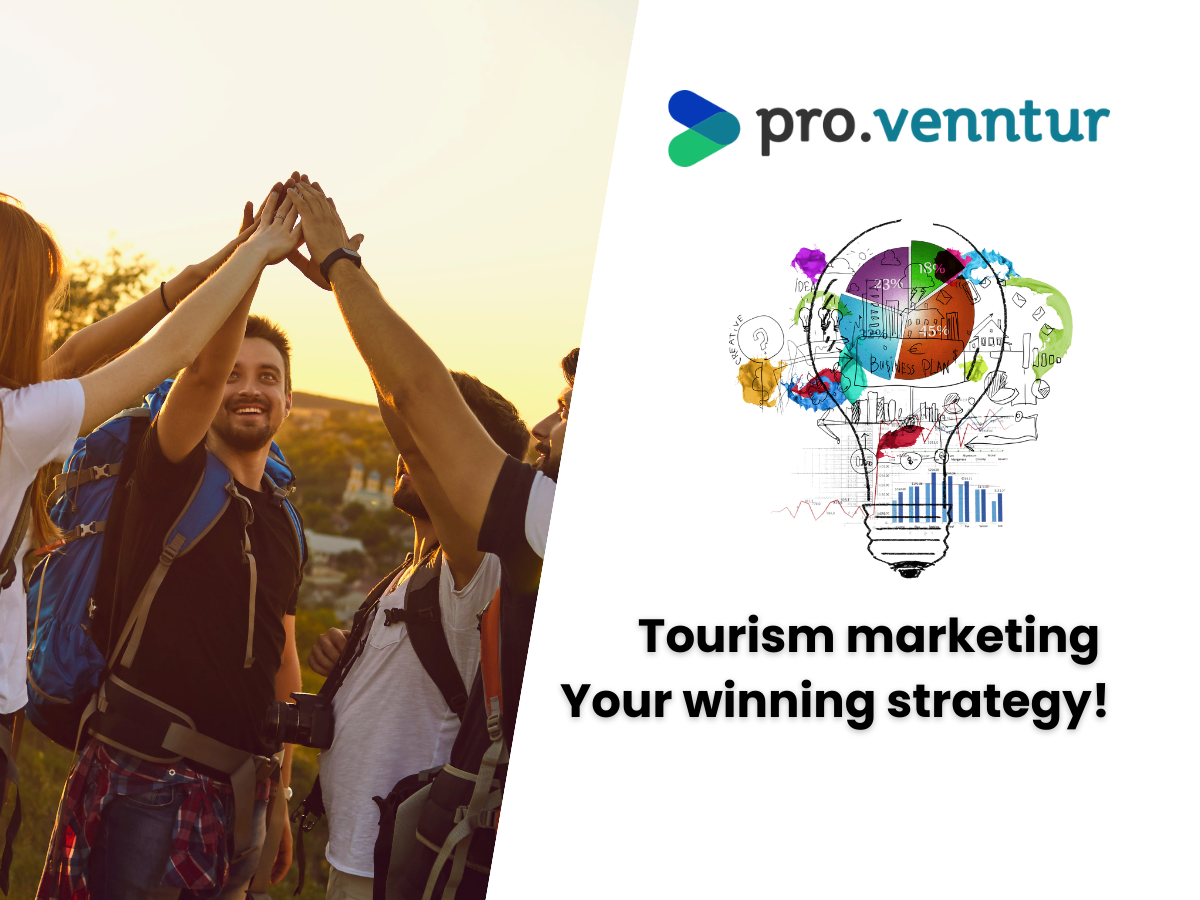Today, more than ever, a good tourism marketing strategy is a must. For this reason, all of us who belong to the tourism industry must develop strategies that allow us to adequately promote our services or products.
The importance of a tourism marketing strategy.
In one of the world’s largest and most competitive industries, it is critical to find ways to stand out from the competition, promote yourself with greater value to travellers and highlight differentiating features.
Tourism marketing allows the development of such strategies, finding a unique selling point and promoting it. To do this, it is vital to be aware of the latest trends and to choose the most relevant actions that are in line with the brand values.
But what is tourism marketing, you may ask?
Tourism marketing is a marketing strategy that implements a detailed plan and a series of specific techniques and actions in order to promote tourism products and services. These products and services include destinations, hotels, transport services, airlines, travel agencies, restaurants and tour operators. Its purpose is to promote the industry, attract customers and create brand recognition.
Although it shares many similarities with traditional marketing, it has distinctive characteristics, especially in its promotional approach and the buying and selling process.
Main features:
-
- It is abstract: Tourism marketing is not focused on selling tangible products and services, but on offering experiences, pleasure and entertainment. It must therefore connect with the emotions, feelings and desires of the consumer. It is crucial that the client can imagine what he or she will experience.
-
- Mobilising the consumer: Unlike other types of marketing, here it is the customer who has to travel to enjoy their purchase. However, during the pandemic, online events were promoted to enable home-based experience.
-
- It is changing: A lot of tourism depends on the season. For example, skiing in winter and enjoying the beach or camping in summer. Other factors can also influence tourism supply and demand, such as the weather, special events or the economic, social and political situation.
-
- Customer experience is paramount: The production process focuses on engaging the consumer, personalising the experience and creating new ways to enjoy leisure time.
-
- It requires individual and personalised actions: Not all tourism products and services can be promoted by a single company, as several players are involved in the purchasing process: from airlines and other transport services, to hotels, travel agencies and more.
In addition, there is a wide variety of types that focus on each sector or business activity:
-
- Gastronomic: Dedicated to gastronomic experiences, such as samples, wine tastings, visits to cheese dairies, tasting menus, etcetera.
- Experiential: Aimed at tourists who want to experience a new culture or tradition in its entirety.
- Activity: Focused on promoting products, services and activities typical of the region.
- Sustainable: Aimed at tourists who are committed to sustainable transport and accommodation methods and environmentally friendly activities.
- Wellness: Focused on selling experiences, destinations and activities that promote wellness, physical and mental health, and spirituality.
- Rural and nature: Aimed at the promotion of rural houses, remote areas, activities in nature or similar.
In venntur
We are specialists in the promotion and visualisation of your tourism activity and, therefore, in tourism marketing. If you are a maker* in the sector, we invite you to get to know our service and platform.
We’re sure to do great things together!
*Maker: 1. adj. All Professional with their activities on the venntur platform. Tourist activity organiser belonging to the Venntur Community. Our best friend.
